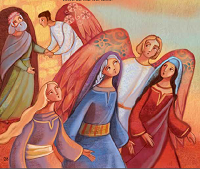 It is time for a FIRST Wild Card Tour book review! If you wish to join the FIRST blog alliance, just click the button. We are a group of reviewers who tour Christian books. A Wild Card post includes a brief bio of the author and a full chapter from each book toured. The reason it is called a FIRST Wild Card Tour is that you never know if the book will be fiction, non~fiction, for young, or for old...or for somewhere in between! Enjoy your free peek into the book!
It is time for a FIRST Wild Card Tour book review! If you wish to join the FIRST blog alliance, just click the button. We are a group of reviewers who tour Christian books. A Wild Card post includes a brief bio of the author and a full chapter from each book toured. The reason it is called a FIRST Wild Card Tour is that you never know if the book will be fiction, non~fiction, for young, or for old...or for somewhere in between! Enjoy your free peek into the book!
You never know when I might play a wild card on you!
Today's Wild Card author is:
and the book:
Joyce Meyer: A Life of Redemption and Destiny
Whitaker House (October 6, 2009)
ABOUT THE AUTHOR:

An educator, businessman, and 5th generation minister, Young’s previously published biographies include: The Rise of Lakewood Church and Joel Osteen, The Journey of T. D. Jakes, and Messengers of Healing -- the story of Charles and Frances Hunter written with his wife, Brenda. The Youngs live in Oklahoma City. They have three children and ten grandchildren.
Product Details:
List Price: $13.99
Paperback: 185 pages
Publisher: Whitaker House (October 6, 2009)
Language: English
ISBN-10: 1603741127
ISBN-13: 978-1603741125
AND NOW...THE FIRST CHAPTER:

The Ashes
I shall not die, but live. (Psalm 118:17)
Our past experiences may have made us the way we are, but we don’t have to stay that way. —Joyce Meyer
By 1943, America had been at war for a year and a half. It would be two more years before her soldiers would return from the battlefields of Europe and the Pacific. On June 4, in the midst of this time of turmoil and sacrifice, Pauline Joyce Hutchison entered into the world. Although Pauline was her given name, it didn’t stick. Within the first few months, her family began calling her Joyce. Unknown to her parents were the two prophetic, if not ironic, aspects of that name. First, Joyce was a name from the Middle Ages originally only given only to men. Second, it was eventually made popular as a woman’s name because of its meaning: “one who rejoices.” Another ironic aspect to Joyce’s young life was that those war years were to be the most peaceful of Joyce’s entire childhood because the day after she was born, her father left to join the military, where he would serve for the next three years.
Joyce’s mother was raised on a Missouri farm many miles away from the urban streets of St. Louis. Joyce’s mother was only seventeen years old when she married—in many ways, still a child herself. With no job skills or trade, she was totally dependent on her husband for financial support. Joyce recalls that her mother frequently struggled with issues of self-esteem and never considered herself to be a person of value. Because of this, Joyce’s mother lived in fear of the fact that, in her mind, she would never be able to survive it if anything were to happen to her husband.
Joyce’s father had been raised deep in the hills of Kentucky. Because he was a blue collar worker with only a basic education, he supported the family by working hard manual labor jobs. By the time he returned home from the war, he was an extremely angry and bitter man, short tempered and seemingly unhappy with everything in his life. Besides his rage, he also returned home with a serious drinking problem. Whenever he drank, any self-control he had left, and his inner demons took over in ways usually directed at Joyce and her mother.
The Nightmare Begins
Today, Joyce does not remember a time in her early life when her father1 did not molest her. She assumes it began within months of his return from the military. He worked the swing shift from the middle of the afternoon until late in the evening. As a usual routine, he arrived home around midnight and began to drink. Joyce and her mother lived in such fear that even the sound of a key turning in the lock was enough to wake them, causing them to lie perfectly still in their beds hoping and praying to be left alone but knowing that was unlikely. As Joyce’s father began to drink, he would use the most foul and obscene language imaginable. He understood how to intimidate his family by the way he walked, the countenance of his face, and the words that came out of his mouth.
On many nights, Joyce and her mother would watch and listen for him to come up the front steps. As soon as they heard his stumbling footsteps, they would sneak out the backdoor in their nightgowns regardless of whether there was ice and snow or heat and humidity. There they would huddle together waiting for him to pass out in a drunken stupor so they could slink back into their beds. Joyce’s father controlled every moment of their lives, even when he wasn’t at home. He decided when they went to bed and when they awoke. He determined what they ate and when they ate it. He determined when they went out and when they stayed home. He decided what they watched on television. Sometimes he would scream and yell when Joyce’s mother spent money on food or other household necessities. Other times he would shower them with gifts and give them money to go shopping. They never knew which man would be coming home after work or which man would wake up in the morning. It was truly a Jekyll-and-Hyde-type of existence.
Joyce witnessed her father administer savage beatings to her mother under the influence of his alcoholic demons. Each day found the two women through a minefield around this man who could go from passive to explosive in an instant. He was like a piece of dynamite in the home and nobody knew if the fuse was lit or not. On some nights, there was an explosion, and on other nights, there was not. The lack of violence, however, did not mean there was ever peace in the home. The tension was constant.
Although her father never hit her, Joyce suffered for years from his sexual abuse. Joyce has described her father’s early life in this way: “He was born in the hills—way back in the hills. In his family, incest was just part of the culture.”1 Joyce’s grandparents on her father’s side were first cousins. In that time, and in that culture, the occasional sexual relations between cousins, siblings, and other family members were endured as an unaddressed “dirty little secret.” There were very few accusations, fewer investigations, and virtually no public convictions for these “private family matters.”
Today, most experts agree that a person’s personality is primarily formed in the first five years of life. If that is true, it is a miracle that Joyce survived those early years without becoming a severely disturbed human being. Fear was her constant companion. Through it all, her father was always careful not to do anything that would leave visual, physical evidence that would be noticed by her mother, teachers, or doctors.
The sheltered and demented world the Joyce grew up in taught her that this was something that every father and daughter did. Her father often told her that what they were doing was natural and good and that she was lucky to have a father who loved her so much. On one occasion, however, Joyce went to stay the night with her cousins. While there, she and one of her male cousins began to fondle each other. Not knowing any better, Joyce told this to her father, causing him to explode in anger. He made it clear to Joyce that this was only an activity shared between father and daughter and that she was never to do these things with anyone else. Without really understanding, Joyce did what her father said.
To the outside world, Joyce appeared to be a tough and bold little girl. As she grew older, it appeared to the world that Joyce couldn’t care less what people thought about her. On the inside, however, she was absolutely controlled by fear. She went so far as to create a pretend personality so that people would not see her true self. She did this partially to mask the pain but also as a way to protect herself. She did not enjoy what was going on, but in her mind, it was the only choice.
As she grew older, Joyce started going to school but was careful about making friends. At one point, Joyce befriended a little girl. During one of her overnight visits, this friend was also molested by Joyce’s father. Soon, her friend stopped coming over to visit, but she never told her parents about what happened. Joyce now knew that she could never develop a close friendship with any of the other girls at school. She didn’t want that to happen ever again. When Joyce became interested in boys, her father would ruin things by becoming jealous that she had “another man” in her life. Typically, her father either ran the boys off or Joyce broke up with them out of fear that her father might physically harm them.
Turning Points
Three things happened when Joyce turned nine years old. First, she finally worked up the courage to tell her mother about what her father had been doing to her. Looking back, it would be easy to assume that her mother must have known what was going on in her own home. After all, what did she think was happening whenever her husband made his frequent visits into Joyce’s room? Their lives were a twenty-four-hour house of horrors in which there was never any peace or relief. Perhaps all Joyce’s mother was able to recognize in those moments was that at least she wasn’t being beaten again.
After Joyce finally revealed her dark secret, her mother examined her for any physical signs of the abuse. When her father came home, she confronted him. He denied everything and insisted that Joyce was lying. After a long and heated discussion, Joyce’s mother chose to believe her husband, perhaps not wanting to face such a painful reality. This was a defining moment in Joyce’s life. She now felt betrayed by both her father and her mother. As an adult, Joyce has tried to rationalize her mother’s decision. If she had chosen to believe Joyce, it would have put them on the streets with no ability to work in order to put a roof over their heads or food on their table.
The second thing that happened at this time was that Joyce’s mother became pregnant. Although Joyce was thrilled with the expectation of a new brother or sister, she actually prayed for a sister who might divert her father’s deviate attention. Such an admission reveals the depths of pain that Joyce felt as a nine-year-old child who only wanted the pain to stop.
In time, her mother gave birth to a boy, David. Because they were nearly ten years apart in age, Joyce and David didn’t know each other very well growing up. He was still a child when she left home. By the time David was born, Joyce’s mother was running a boardinghouse to make extra money for the family. There were two tenants at that time: a lady named Arlene; and a man called Cotton, so named because his hair was so blonde that it seemed almost white. Joyce’s father accused her mother of having an affair with Cotton and, for a long time, denied that David was his son, only adding to the family’s tension level.
The third thing happened while Joyce was visiting the home of one of her cousins. They went to church, something that Joyce’s family never did. Because they had several visitors at the time, her cousin’s family first decided to skip church, but Joyce insisted that they go. She had been there before and had a specific reason for going on this particular Sunday. She knew that at the end of the service there was always a call for people to come forward and accept Jesus Christ as Savior. That was precisely what Joyce planned to do. She would later describe the event as a “glorious cleansing.”
Wouldn’t you know it, the pastor didn’t give an altar call that night. I sat there in my pew as long as I could, then I grabbed my two cousins’ hands and dragged them with me—“Come on, we’re going to get saved!” Through her tears, Joyce stammered to the surprised pastor, “Can you save me?” As she prayed, she felt the cleansing power of the Lord in her life. 2
All of her life, Joyce had endured the stain of incest. Now, for the first time in her nine-year-old life, she finally felt cleansed. “I always felt dirty. I was always washing, bathing, trying to get clean. And in this one moment, Jesus washed me, and He never left me.”3
The next day, while playing a game of hide-and-seek with her cousins, she cheated. Immediately, a feeling washed over her suggesting that she had betrayed God. She feared that because of her act of “sin,” the cleansing she had experienced would go away. By the time she was back at home, any feelings of being cleansed that she had found in church were gone. She would later say that she thought she had lost Jesus.
The Night Grows Darker
Things at home did not change. Now that her mother was pregnant, Joyce’s father only stepped up his perverse behavior. Whenever he demanded that Joyce meet him in the basement or the garage, she felt she had to go or else risk making him angry at her mother. When she went, the abuse became more and more deviant. He began to expose himself to her around the house, forced her to view pornography, and increased his physical contact with her.
By the time Joyce reached her teens, her father would announce to her mother that he was going to take her out for a driving lesson. Instead of driving, however, he would take her to a nearby cemetery where he would rape her in the backseat. This happened on several occasions. One night, they were actually caught in the act by a policeman. Joyce’s father lied and told the policeman that Joyce was his cousin and that she had “talked him into it”—as if that should have made a difference. Today, some consider the 1950s to be a time of innocence. In many ways, they were also a time of ignorance. Today, any older man having sexual relations with an underage girl, especially a family member, would be immediately arrested and forever branded as a sexual predator. Instead, incredibly, the policeman agreed to ignore the situation if he, too, could be intimate with Joyce. Her father agreed. An arrangement was made for Joyce to meet the policeman in a café. In a rare turn of fortune for Joyce, the policeman was called away by his police radio and she avoided having to go through with the vile plan.
Her father’s perversions were not limited to his daughter. Joyce’s aunt, her father’s own younger sister, was forced to join them in the cemetery during her stay with the family, proving that there were no limits to the demented state of her father’s mind and the actions it spawned. He was a man so controlled by his own selfish lusts that it did not matter to him whom he hurt.
Teen Years
Joyce began working at a job when she was thirteen. She didn’t want to depend on her father for anything. She also needed to establish something she could control in her chaotic life. If she could make even a little bit of money, it would be something she could control. Obviously, her father was not a man attuned to the needs of others, especially a daughter’s needs for pretty things, makeup, and getting her hair done. He had no desire for her to do anything that would make her less dependent on him or more attractive to others.
Because Joyce was a minor, she lied about her age. She was tall and mature looking for her age and easily passed for someone a few years older. She landed a job at the local dime store, and she also waited tables at small diners and cafes, which paid better because of tips. Besides getting her first taste of independence away from the controlling influence of her father, this also instilled in Joyce the importance of being able to manage her money wisely.
During this time, Joyce began to steal anything she could. She stole from her employers when no one was looking. She stole from family and friends when the opportunity presented itself. She once stole a pair of glasses from the mother of one of her friends even though she couldn’t use them without being discovered. She not only stole things, but she also lied constantly about anything and everything. As a young teen, it was her form of rebellion and made her feel smarter than other people.
When Joyce was fourteen, her mother walked in as her father was sexually abusing her. Joyce immediately thought, Thank God! Now she will put an end to it! Unfortunately, her mother stopped, momentarily stunned by the scene before her, then, as if she had seen nothing, picked up her purse and walked out. A few hours later, she returned but said absolutely nothing. It was as if the incident had never happened. In fact, her mother didn’t talk about it until many years later, long after Joyce had left home. When she did talk about it, she simply said that she had not known what to do, so she had done nothing. Without the courage to stand on her own two feet, Joyce’s mother felt that she had no choice but to live in denial. To acknowledge openly what she had witnessed would leave her with no option other than to leave her husband, and in her mind, divorce was not something she could consider. Thus, she sacrificed her daughter’s welfare and chose to remain silent.
When her mother became ill and went to the hospital, Joyce wrote her father a note begging him to stop molesting her. Because he worked nights, she put it on the kitchen table, where he would be sure to find it, and went to bed. When he got home and found the note, he became enraged, woke her out of a sound sleep, screamed at her, and shook his fist in her face. He warned her never to write anything like that ever again or she would regret it for the rest of her life.
High School Years
Joyce attended O’Fallon Technical High School in St. Louis, an institution that did not see its role as preparing students for college but rather for a life in trade professions. Students at O’Fallon were not considered “college material”—especially the women. For them, it was assumed that they would either get married right after graduation or work in menial, low-paying positions. Joyce was featured in the school yearbook, The Flame and Steel, with the June graduating class of the clerical department. It stated that she was trained in bookkeeping and listed her extracurricular activities as girls’ softball, student government, and Honorama—an honor society for students who excelled in scholarship, service, and attendance.
Many of her peers regarded Joyce as a leader. She was often sought out for advice. Others saw her, as one classmate recalled, as the “sharp-tongued” leader of a small but very close “in crowd” of girls who seemed more concerned with their hair and makeup than anything else. This provided Joyce with great cover and was a distraction from her home life. Later, one of her classmates would remark, “Getting out in front and leading the parade, that’s where she always wanted to be.”4
Despite the heinous environment in which she was imprisoned for so many years, Joyce was somehow demonstrating, even as a teen, some of the traits that would serve her so well in the years to come. She was determined not to allow her father’s abuse—or her mother’s betrayal—to determine who she would become in life. Joyce’s childhood would have destroyed many people, leaving them without the self-esteem or confidence to achieve anything in life. Although there would be many more hardships and poor choices ahead, Joyce was starting to emerge from decades of darkness and beginning to overcome the horrors she had endured. She was determined to not become the “trash” that her father had always claimed her to be. As she graduated from high school, Joyce began to take the first small steps toward breaking out of her situation and taking control of her life.
I shall not die, but live. (Psalm 118:17)
Our past experiences may have made us the way we are, but we don’t have to stay that way. —Joyce Meyer
By 1943, America had been at war for a year and a half. It would be two more years before her soldiers would return from the battlefields of Europe and the Pacific. On June 4, in the midst of this time of turmoil and sacrifice, Pauline Joyce Hutchison entered into the world. Although Pauline was her given name, it didn’t stick. Within the first few months, her family began calling her Joyce. Unknown to her parents were the two prophetic, if not ironic, aspects of that name. First, Joyce was a name from the Middle Ages originally only given only to men. Second, it was eventually made popular as a woman’s name because of its meaning: “one who rejoices.” Another ironic aspect to Joyce’s young life was that those war years were to be the most peaceful of Joyce’s entire childhood because the day after she was born, her father left to join the military, where he would serve for the next three years.
Joyce’s mother was raised on a Missouri farm many miles away from the urban streets of St. Louis. Joyce’s mother was only seventeen years old when she married—in many ways, still a child herself. With no job skills or trade, she was totally dependent on her husband for financial support. Joyce recalls that her mother frequently struggled with issues of self-esteem and never considered herself to be a person of value. Because of this, Joyce’s mother lived in fear of the fact that, in her mind, she would never be able to survive it if anything were to happen to her husband.
Joyce’s father had been raised deep in the hills of Kentucky. Because he was a blue collar worker with only a basic education, he supported the family by working hard manual labor jobs. By the time he returned home from the war, he was an extremely angry and bitter man, short tempered and seemingly unhappy with everything in his life. Besides his rage, he also returned home with a serious drinking problem. Whenever he drank, any self-control he had left, and his inner demons took over in ways usually directed at Joyce and her mother.
The Nightmare Begins
Today, Joyce does not remember a time in her early life when her father1 did not molest her. She assumes it began within months of his return from the military. He worked the swing shift from the middle of the afternoon until late in the evening. As a usual routine, he arrived home around midnight and began to drink. Joyce and her mother lived in such fear that even the sound of a key turning in the lock was enough to wake them, causing them to lie perfectly still in their beds hoping and praying to be left alone but knowing that was unlikely. As Joyce’s father began to drink, he would use the most foul and obscene language imaginable. He understood how to intimidate his family by the way he walked, the countenance of his face, and the words that came out of his mouth.
On many nights, Joyce and her mother would watch and listen for him to come up the front steps. As soon as they heard his stumbling footsteps, they would sneak out the backdoor in their nightgowns regardless of whether there was ice and snow or heat and humidity. There they would huddle together waiting for him to pass out in a drunken stupor so they could slink back into their beds. Joyce’s father controlled every moment of their lives, even when he wasn’t at home. He decided when they went to bed and when they awoke. He determined what they ate and when they ate it. He determined when they went out and when they stayed home. He decided what they watched on television. Sometimes he would scream and yell when Joyce’s mother spent money on food or other household necessities. Other times he would shower them with gifts and give them money to go shopping. They never knew which man would be coming home after work or which man would wake up in the morning. It was truly a Jekyll-and-Hyde-type of existence.
Joyce witnessed her father administer savage beatings to her mother under the influence of his alcoholic demons. Each day found the two women through a minefield around this man who could go from passive to explosive in an instant. He was like a piece of dynamite in the home and nobody knew if the fuse was lit or not. On some nights, there was an explosion, and on other nights, there was not. The lack of violence, however, did not mean there was ever peace in the home. The tension was constant.
Although her father never hit her, Joyce suffered for years from his sexual abuse. Joyce has described her father’s early life in this way: “He was born in the hills—way back in the hills. In his family, incest was just part of the culture.”1 Joyce’s grandparents on her father’s side were first cousins. In that time, and in that culture, the occasional sexual relations between cousins, siblings, and other family members were endured as an unaddressed “dirty little secret.” There were very few accusations, fewer investigations, and virtually no public convictions for these “private family matters.”
Today, most experts agree that a person’s personality is primarily formed in the first five years of life. If that is true, it is a miracle that Joyce survived those early years without becoming a severely disturbed human being. Fear was her constant companion. Through it all, her father was always careful not to do anything that would leave visual, physical evidence that would be noticed by her mother, teachers, or doctors.
The sheltered and demented world the Joyce grew up in taught her that this was something that every father and daughter did. Her father often told her that what they were doing was natural and good and that she was lucky to have a father who loved her so much. On one occasion, however, Joyce went to stay the night with her cousins. While there, she and one of her male cousins began to fondle each other. Not knowing any better, Joyce told this to her father, causing him to explode in anger. He made it clear to Joyce that this was only an activity shared between father and daughter and that she was never to do these things with anyone else. Without really understanding, Joyce did what her father said.
To the outside world, Joyce appeared to be a tough and bold little girl. As she grew older, it appeared to the world that Joyce couldn’t care less what people thought about her. On the inside, however, she was absolutely controlled by fear. She went so far as to create a pretend personality so that people would not see her true self. She did this partially to mask the pain but also as a way to protect herself. She did not enjoy what was going on, but in her mind, it was the only choice.
As she grew older, Joyce started going to school but was careful about making friends. At one point, Joyce befriended a little girl. During one of her overnight visits, this friend was also molested by Joyce’s father. Soon, her friend stopped coming over to visit, but she never told her parents about what happened. Joyce now knew that she could never develop a close friendship with any of the other girls at school. She didn’t want that to happen ever again. When Joyce became interested in boys, her father would ruin things by becoming jealous that she had “another man” in her life. Typically, her father either ran the boys off or Joyce broke up with them out of fear that her father might physically harm them.
Turning Points
Three things happened when Joyce turned nine years old. First, she finally worked up the courage to tell her mother about what her father had been doing to her. Looking back, it would be easy to assume that her mother must have known what was going on in her own home. After all, what did she think was happening whenever her husband made his frequent visits into Joyce’s room? Their lives were a twenty-four-hour house of horrors in which there was never any peace or relief. Perhaps all Joyce’s mother was able to recognize in those moments was that at least she wasn’t being beaten again.
After Joyce finally revealed her dark secret, her mother examined her for any physical signs of the abuse. When her father came home, she confronted him. He denied everything and insisted that Joyce was lying. After a long and heated discussion, Joyce’s mother chose to believe her husband, perhaps not wanting to face such a painful reality. This was a defining moment in Joyce’s life. She now felt betrayed by both her father and her mother. As an adult, Joyce has tried to rationalize her mother’s decision. If she had chosen to believe Joyce, it would have put them on the streets with no ability to work in order to put a roof over their heads or food on their table.
The second thing that happened at this time was that Joyce’s mother became pregnant. Although Joyce was thrilled with the expectation of a new brother or sister, she actually prayed for a sister who might divert her father’s deviate attention. Such an admission reveals the depths of pain that Joyce felt as a nine-year-old child who only wanted the pain to stop.
In time, her mother gave birth to a boy, David. Because they were nearly ten years apart in age, Joyce and David didn’t know each other very well growing up. He was still a child when she left home. By the time David was born, Joyce’s mother was running a boardinghouse to make extra money for the family. There were two tenants at that time: a lady named Arlene; and a man called Cotton, so named because his hair was so blonde that it seemed almost white. Joyce’s father accused her mother of having an affair with Cotton and, for a long time, denied that David was his son, only adding to the family’s tension level.
The third thing happened while Joyce was visiting the home of one of her cousins. They went to church, something that Joyce’s family never did. Because they had several visitors at the time, her cousin’s family first decided to skip church, but Joyce insisted that they go. She had been there before and had a specific reason for going on this particular Sunday. She knew that at the end of the service there was always a call for people to come forward and accept Jesus Christ as Savior. That was precisely what Joyce planned to do. She would later describe the event as a “glorious cleansing.”
Wouldn’t you know it, the pastor didn’t give an altar call that night. I sat there in my pew as long as I could, then I grabbed my two cousins’ hands and dragged them with me—“Come on, we’re going to get saved!” Through her tears, Joyce stammered to the surprised pastor, “Can you save me?” As she prayed, she felt the cleansing power of the Lord in her life. 2
All of her life, Joyce had endured the stain of incest. Now, for the first time in her nine-year-old life, she finally felt cleansed. “I always felt dirty. I was always washing, bathing, trying to get clean. And in this one moment, Jesus washed me, and He never left me.”3
The next day, while playing a game of hide-and-seek with her cousins, she cheated. Immediately, a feeling washed over her suggesting that she had betrayed God. She feared that because of her act of “sin,” the cleansing she had experienced would go away. By the time she was back at home, any feelings of being cleansed that she had found in church were gone. She would later say that she thought she had lost Jesus.
The Night Grows Darker
Things at home did not change. Now that her mother was pregnant, Joyce’s father only stepped up his perverse behavior. Whenever he demanded that Joyce meet him in the basement or the garage, she felt she had to go or else risk making him angry at her mother. When she went, the abuse became more and more deviant. He began to expose himself to her around the house, forced her to view pornography, and increased his physical contact with her.
By the time Joyce reached her teens, her father would announce to her mother that he was going to take her out for a driving lesson. Instead of driving, however, he would take her to a nearby cemetery where he would rape her in the backseat. This happened on several occasions. One night, they were actually caught in the act by a policeman. Joyce’s father lied and told the policeman that Joyce was his cousin and that she had “talked him into it”—as if that should have made a difference. Today, some consider the 1950s to be a time of innocence. In many ways, they were also a time of ignorance. Today, any older man having sexual relations with an underage girl, especially a family member, would be immediately arrested and forever branded as a sexual predator. Instead, incredibly, the policeman agreed to ignore the situation if he, too, could be intimate with Joyce. Her father agreed. An arrangement was made for Joyce to meet the policeman in a café. In a rare turn of fortune for Joyce, the policeman was called away by his police radio and she avoided having to go through with the vile plan.
Her father’s perversions were not limited to his daughter. Joyce’s aunt, her father’s own younger sister, was forced to join them in the cemetery during her stay with the family, proving that there were no limits to the demented state of her father’s mind and the actions it spawned. He was a man so controlled by his own selfish lusts that it did not matter to him whom he hurt.
Teen Years
Joyce began working at a job when she was thirteen. She didn’t want to depend on her father for anything. She also needed to establish something she could control in her chaotic life. If she could make even a little bit of money, it would be something she could control. Obviously, her father was not a man attuned to the needs of others, especially a daughter’s needs for pretty things, makeup, and getting her hair done. He had no desire for her to do anything that would make her less dependent on him or more attractive to others.
Because Joyce was a minor, she lied about her age. She was tall and mature looking for her age and easily passed for someone a few years older. She landed a job at the local dime store, and she also waited tables at small diners and cafes, which paid better because of tips. Besides getting her first taste of independence away from the controlling influence of her father, this also instilled in Joyce the importance of being able to manage her money wisely.
During this time, Joyce began to steal anything she could. She stole from her employers when no one was looking. She stole from family and friends when the opportunity presented itself. She once stole a pair of glasses from the mother of one of her friends even though she couldn’t use them without being discovered. She not only stole things, but she also lied constantly about anything and everything. As a young teen, it was her form of rebellion and made her feel smarter than other people.
When Joyce was fourteen, her mother walked in as her father was sexually abusing her. Joyce immediately thought, Thank God! Now she will put an end to it! Unfortunately, her mother stopped, momentarily stunned by the scene before her, then, as if she had seen nothing, picked up her purse and walked out. A few hours later, she returned but said absolutely nothing. It was as if the incident had never happened. In fact, her mother didn’t talk about it until many years later, long after Joyce had left home. When she did talk about it, she simply said that she had not known what to do, so she had done nothing. Without the courage to stand on her own two feet, Joyce’s mother felt that she had no choice but to live in denial. To acknowledge openly what she had witnessed would leave her with no option other than to leave her husband, and in her mind, divorce was not something she could consider. Thus, she sacrificed her daughter’s welfare and chose to remain silent.
When her mother became ill and went to the hospital, Joyce wrote her father a note begging him to stop molesting her. Because he worked nights, she put it on the kitchen table, where he would be sure to find it, and went to bed. When he got home and found the note, he became enraged, woke her out of a sound sleep, screamed at her, and shook his fist in her face. He warned her never to write anything like that ever again or she would regret it for the rest of her life.
High School Years
Joyce attended O’Fallon Technical High School in St. Louis, an institution that did not see its role as preparing students for college but rather for a life in trade professions. Students at O’Fallon were not considered “college material”—especially the women. For them, it was assumed that they would either get married right after graduation or work in menial, low-paying positions. Joyce was featured in the school yearbook, The Flame and Steel, with the June graduating class of the clerical department. It stated that she was trained in bookkeeping and listed her extracurricular activities as girls’ softball, student government, and Honorama—an honor society for students who excelled in scholarship, service, and attendance.
Many of her peers regarded Joyce as a leader. She was often sought out for advice. Others saw her, as one classmate recalled, as the “sharp-tongued” leader of a small but very close “in crowd” of girls who seemed more concerned with their hair and makeup than anything else. This provided Joyce with great cover and was a distraction from her home life. Later, one of her classmates would remark, “Getting out in front and leading the parade, that’s where she always wanted to be.”4
Despite the heinous environment in which she was imprisoned for so many years, Joyce was somehow demonstrating, even as a teen, some of the traits that would serve her so well in the years to come. She was determined not to allow her father’s abuse—or her mother’s betrayal—to determine who she would become in life. Joyce’s childhood would have destroyed many people, leaving them without the self-esteem or confidence to achieve anything in life. Although there would be many more hardships and poor choices ahead, Joyce was starting to emerge from decades of darkness and beginning to overcome the horrors she had endured. She was determined to not become the “trash” that her father had always claimed her to be. As she graduated from high school, Joyce began to take the first small steps toward breaking out of her situation and taking control of her life.
Happy Reading!

Sell Used Books - Have Your Books Shipped To Us For Free And Get Fast Cash Back!







.jpg)





 Stumble It!
Stumble It!











No comments:
Post a Comment